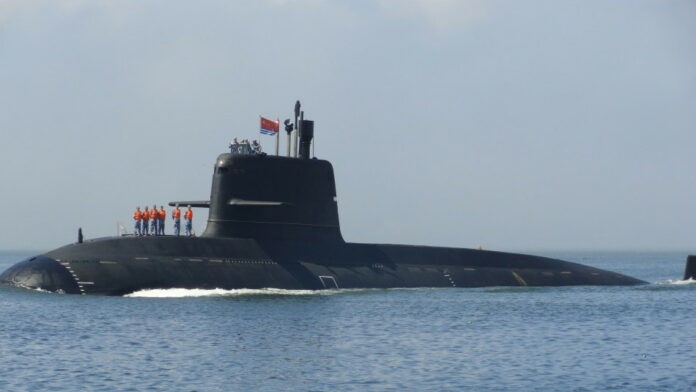Political Uncertainty and Economic Slowdown Impact Thailand’s Submarine Acquisition
Thailand’s pursuit of acquiring a Chinese-made S26T Yuan class submarine faces potential delays due to political uncertainty and economic challenges. The Srettha Thavisin administration, cautious in its decision-making amid these turbulent times, is unlikely to take risks, sources close to the matter revealed.
Recent meetings with Chinese counterparts in mid-May have reportedly made progress toward continuing the project. However, Defense Minister Sutin Klungsang stated that finalizing the deal would require another one or two months. This delay is not just about the purchase of a warship but involves considering the Navy’s strategic needs, national interests, relations with China, and legal intricacies.
The Navy has not proposed a budget for the submarine project for the fiscal year 2025 as the deal remains unresolved. The House of Representatives is set to review the budget bill in June. Additionally, the Navy cannot proceed with its proposal for a 17-billion-baht budget to acquire a 4,000-ton frigate, a proposal previously rejected by the House budget committee due to financial constraints.
The ongoing political uncertainty further complicates budget proposals for both the submarine and the frigate for the 2026 fiscal year. The longevity of the current government is uncertain, especially with Prime Minister Srettha’s political future in jeopardy following the Constitutional Court’s acceptance of a petition challenging the appointment of a minister. This could potentially lead to the government’s collapse if a guilty verdict is reached.
Economic factors also play a significant role. Thailand’s sluggish economic growth, expanding only by 1.5% in the first quarter of the year compared to the same period last year, makes it challenging to justify the significant budget required for military hardware procurement.
The 13.9-billion-baht submarine project encountered a major setback when China Shipbuilding & Offshore International Co Ltd (CSOC) failed to provide a German MTU 396 engine as specified in the contract. Since taking office, the Thai government has explored various solutions, including a swap for a frigate, contract termination with compensation, and using a Chinese-made CHD 620 engine.
A task force set up by Defense Minister Sutin in February, comprising senior naval officials, experts, and politicians, failed to reach a consensus on the way forward. While the Navy preferred proceeding with the Chinese engine, the government leaned towards a frigate swap, and the opposition recommended contract termination with compensation.
Contract termination is not feasible as the Thai side accepted a “force majeure” clause, relinquishing the right to scrap the contract if the German engine was unavailable. Swapping the submarine for a frigate poses legal complications and would not guarantee a full refund from the Chinese side.
The latest negotiations between Thai and Chinese officials in mid-May concluded with an agreement to use the Chinese CHD 620 engine, alongside a 200-million-baht compensation, free training simulators, discounts, and training courses for the Navy. However, this agreement requires approval from the Thai Cabinet and the Chinese Central Military Committee, necessitating amendments to the 2017 principal contract and a 1,200-day extension.
Opposition MP Wiroj Lakkhanaadisorn criticized the deal, arguing that the 200-million-baht compensation is insufficient considering the Navy has already paid nearly 8 billion baht, and the project would be delayed by over three years. He expressed concerns over the unproven reliability of the Chinese engine compared to the German MTU 396, which has over 310,000 operational hours in submarines worldwide.
There are also apprehensions about the CHD 620 engine’s capabilities, as it has not yet been extensively tested in submarine operations. The Thai Navy’s previous request to observe an engineering test of the engine was denied by CSOC, with a dismissive response suggesting that another test was unnecessary.
This complex situation underscores the intricate balance between military procurement, political stability, and economic considerations that Thailand must navigate in its strategic defense planning.



